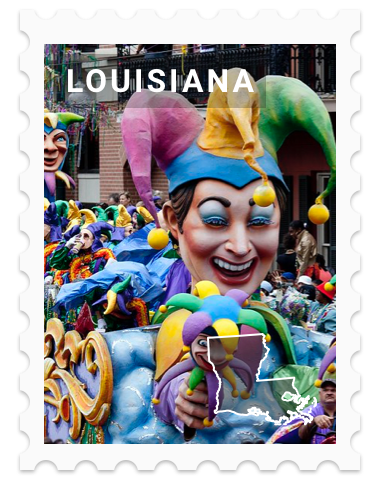Louisiana
Discover Louisiana

Capital
Baton Rouge
Statehood
April 30, 1812
Louisiana, originally settled by the French in the late 17th century, was a French colony known as La Louisiane, named after King Louis XIV. The region's strategic location along the Mississippi River and the Gulf of Mexico made it a prized territory.
In the 18th century, Louisiana transitioned between French and Spanish rule before being acquired by the United States in the Louisiana Purchase of 1803, doubling the size of the young nation. New Orleans, with its French and Creole influences, became a vibrant cultural melting pot.
The state played a pivotal role in the War of 1812, particularly during the Battle of New Orleans, where Andrew Jackson secured a decisive victory. Louisiana's unique blend of cultures, including Creole, Cajun, and African influences, contributed to its rich musical heritage and culinary traditions.
Today, Louisiana's historical landmarks, such as the French Quarter in New Orleans and plantation homes along the Mississippi River, offer a glimpse into its storied past. The state's lively culture, festivals, and enduring contributions to jazz, cuisine, and Mardi Gras celebrations continue to make it a fascinating subject for historians and a captivating destination for travelers.
Source ChatGPT
Major Airport
Louis Armstrong New Orleans International Airport

Elevation
1 m
Opened
1946
Runways
2






